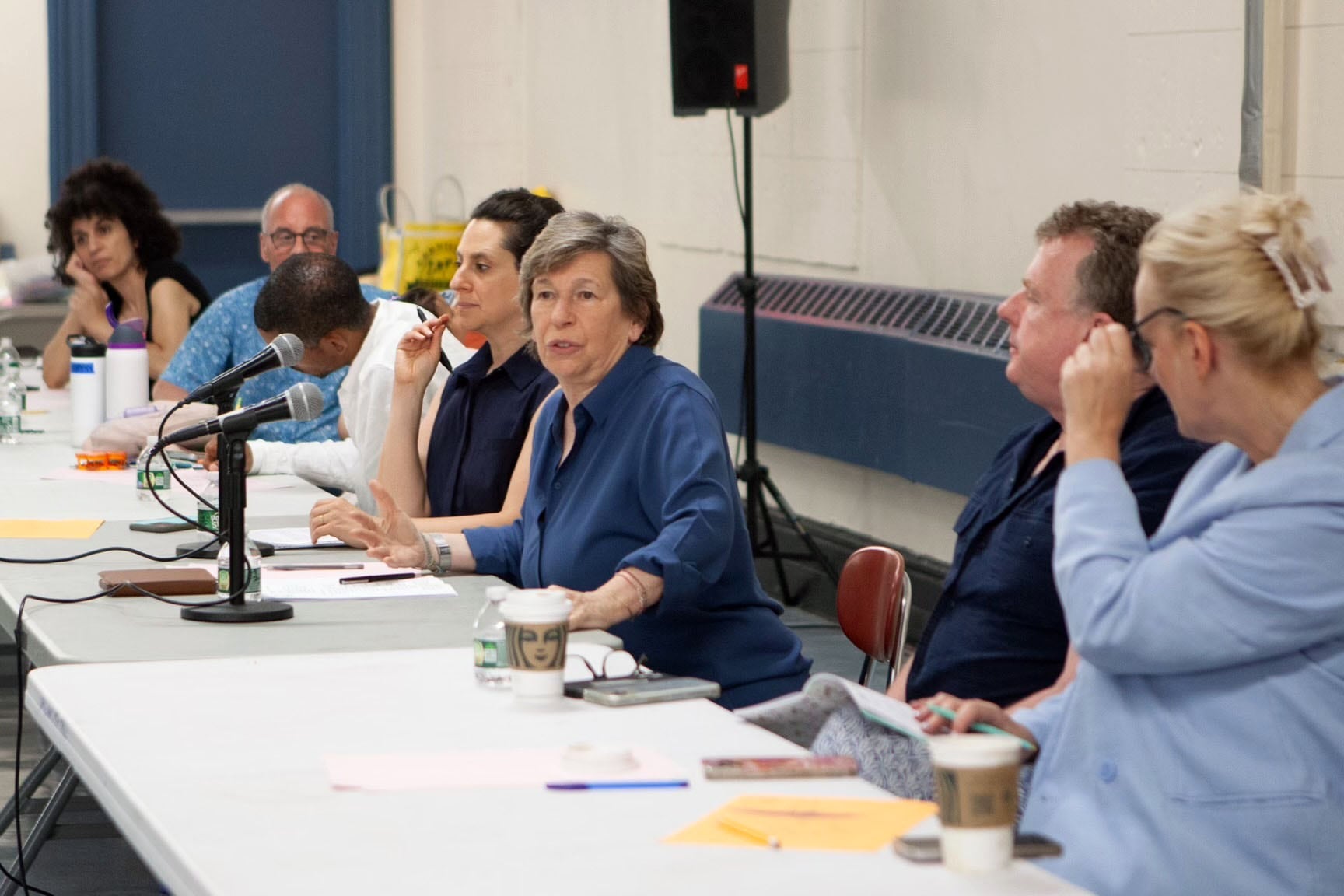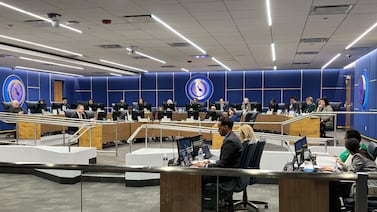Sign up for Chalkbeat New York’s free daily newsletter to keep up with NYC’s public schools.
One of the country’s most prominent union leaders is raising fresh concerns about New York City’s sweeping literacy curriculum mandate, the signature education initiative of schools Chancellor David Banks.
During a panel discussion at a Manhattan elementary school this month, American Federation of Teachers President Randi Weingarten sharply criticized the reading curriculums elementary schools are required to use.
And in a recent interview expanding on her views, she said that she is “hearing a lot of frustration from teachers” about how the new materials are being rolled out.
“It became much more about the performative aspects of saying the curriculum is being implemented as opposed to the real support that teachers need and students need in mastering new skills and new tools,” Weingarten told Chalkbeat.
Weingarten said she supports the city’s move to mandate curriculums that line up with longstanding research on how children learn to read — often referred to as the “science of reading” — but the expectations have been “really rigid, and it doesn’t give teachers enough time to learn.” The city should also expand the number of schools that are exempt from the mandates, she said.
That message is not new, as New York City educators have previously raised concerns about the Education Department’s training efforts, and some school communities have called for waivers from the new curriculums. But the messenger is.
Weingarten’s comments represent one of the highest-profile critiques to date of Banks’ top education initiative. It’s also a significant break from the local teachers union, the United Federation of Teachers, which was a key backer of the curriculum overhaul and has remained publicly supportive of the rollout.
The UFT, which is a local affiliate of the AFT, did not respond to a question about whether local union leaders agree with Weingarten’s assessment. She is the former president of the UFT and said she maintains a “very close” relationship with Michael Mulgrew, the union’s current leader.
Weingarten’s critique comes at an inflection point, as elementary schools across the five boroughs must implement one of three approved reading curriculums by this fall. City officials contend the curriculum overhaul will help flush out instructional practices that have been discredited by experts and boost reading proficiency rates.
And the stakes of figuring out how to train teachers to use new curriculums at scale are only getting higher. On Monday, city officials announced plans to adopt standardized curriculums across middle and high school math classrooms.
Education Department spokesperson Nicole Brownstein did not directly respond to Weingarten’s comments. But she said in a statement that “NYC Reads would not work without our labor partners because they understand the power of providing high-quality instructional materials to teachers.” The UFT is also involved in training teachers to adopt the new curriculums.
Teachers are eligible for up to 26 days of coaching throughout the school year to help adapt to the new materials, officials said, in addition to other opportunities offered by local district offices. Based on surveys of teachers, the feedback on the city’s training efforts has been “overwhelmingly positive,” Brownstein wrote.
During the Manhattan panel discussion at The Neighborhood School earlier this month, which was co-sponsored by Chalkbeat, Weingarten took direct aim at the city’s curriculum choices. “The three curriculum in my judgment that the chancellor picked … they’re terrible,” she said.
Others have taken aim at the curriculum choices as well, zeroing in on Into Reading from the company Houghton Mifflin Harcourt, the program most local superintendents are mandating. Some educators, students, and advocates contend it is dry and too reliant on excerpts rather than full books, a claim the company disputes.
Weingarten later said in an interview she regrets saying the curriculums are terrible. But she stands by her view that teachers need more support and flexibility in implementing them.
“Anytime someone introduces something that looks like a script — or every five minutes is regulated — it takes the teaching out of teaching,” she said.
At The Neighborhood School, parent leaders have raised concerns that the curriculum mandate will make it harder for teachers to use materials they’ve designed themselves and which makes their instruction distinctive. Known for project-based learning and inclusive approaches to LGBTQ students and staff, the campus incorporates lessons about gender identity, pronoun use, and social-emotional issues.
During Weingarten’s roundtable discussion there, she suggested schools that have strong instructional approaches should be given exemptions to the mandate. So far, just one school — a gifted and talented program in Brooklyn — has been granted a waiver, which came only after an advocacy campaign from parents and students.
The Education Department indicated the school’s high academic performance made it eligible for a waiver, but officials have not outlined precise criteria for granting them, insisting principals must submit a request and final decisions are made on a case-by-case basis.
“My hunch is there are a lot more schools that should have gotten the waiver,” Weingarten told Chalkbeat.
Susan Neuman, a literacy expert at New York University, said she was surprised by Weingarten’s comments and worried they might sour educators on the new materials before they’ve taken hold.
“Teachers might begin questioning the curriculum before they’ve had a chance to enact it appropriately,” Neuman said. “One of the things that’s frustrating to me is there has to be a sense of patience.” (Neuman is a board member of the Al Shanker Institute, which is affiliated with the AFT.)
Neuman said Weingarten is likely trying to navigate the tension between requiring schools to adopt new approaches to reading instruction while maintaining room for teachers to adapt the materials to meet their students’ needs and respecting their expertise.
“This is a huge school system and they can now say there is some consistency … that is something to be recognized and celebrated to a great extent,” said Neuman. “We no longer have a curriculum based on hope and prayer.”
Alex Zimmerman is a reporter for Chalkbeat New York, covering NYC public schools. Contact Alex at azimmerman@chalkbeat.org.






